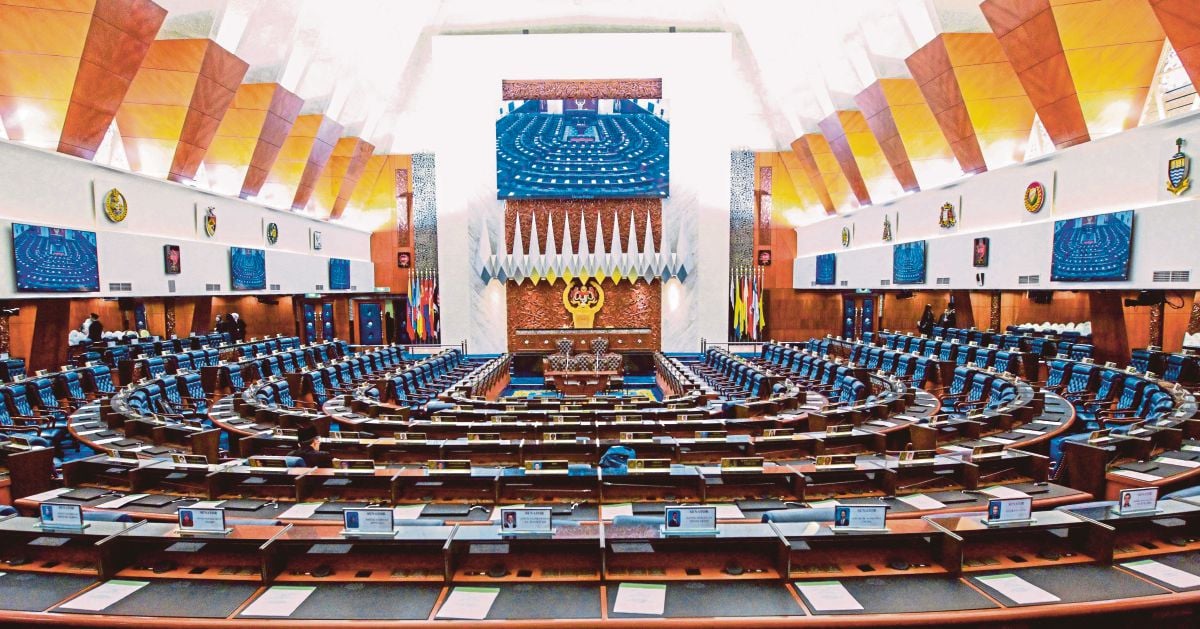Generational EndGame Has Been Tabled At Dewan Rakyat. Here Are 5 Stats M’sians Should Know
 Thirsty for JUICE content? Quench your cravings on our Instagram, TikTok and WhatsApp
Thirsty for JUICE content? Quench your cravings on our Instagram, TikTok and WhatsApp

This Spotlight is sponsored by the Ministry of Health.
The Control of Tobacco Product and Smoking Bill, also known as Generational EndGame (GEG), was retabled for the first reading in the Dewan Rakyat on 12 June
The previous bill was tabled last year, before being referred to the Parliamentary Special Select Committee (PSSC), where it was scrutinised and debated.
On 26 May, the Cabinet gave the green light for the current Generational EndGame bill, which has taken into consideration the recommended amendments by the PSSC. After being retabled today, the bill has been referred to the PSSC for further fine tuning.
According to current Health Minister Dr Zaliha Mustafa, this is to ensure there is proper check and balance, while allowing for any further recommendations to be implemented.
Image via New Straits Times
The main goal of the bill is aimed at eradicating smoking among children born in 2007 and the subsequent years. These individuals would be prohibited from smoking or buying any type of smoking product, including electronic cigarettes or vape products, even after reaching the age of 18.
However, the enforcement of laws in relation to smoking devices like vape, tobacco, and other non-tobacco products would come at a later date, whereas conventional tobacco products would be banned the moment the bill is passed.
In view of the retabling of the Generational EndGame bill, here are a few important statistics that Malaysians should keep in mind:
1. According to the National Health and Morbidity Survey (NHMS) 2022, there was a significant increase (14.9%) in vaping among teenagers
Image via Ryan Grice/Unsplash
The national survey found that the use of vaping among teenagers jumped from 9.8% in 2017 to 14.9% in 2022, indicating a 5.1% increase in new teenage smokers.
Vape and e-cigarette culture has become a trend amongst young Malaysians, which is a worrying sign, especially since these forms of smoking are still capable of damaging the body despite being “less dangerous”.
2. There have been 68 deaths related to E-Cigarette and Vaping Associated Lung Injuries (EVALI) in the United States
Image via Olga Kononenko/Unsplash
An outbreak of EVALI started in the US in 2019. A total of 2,807 hospitalised cases, including 68 deaths, have been confirmed
The Ministry of Health is currently conducting a monitoring and surveillance of EVALI cases in Malaysia.
EVALI is a severe inflammatory lung illness that can cause hospitalisation, and the disease primarily affects breathing, while also causing abdominal discomfort, fever, and chills.
While the exact cause of EVALI is still unknown, it can result from wrongful use of e-cigarettes or vapes.
3. It would cost over RM150,000 for just 12 days of treatment for a patient suffering from vaping-associated lung injury
Image via Anna Shvets/Pexels
Not only does EVALI have serious implications for patients physically, it comes with a big financial burden as well.
In fact, the government is expected to spend as much as RM369 million in 2030 to treat complications related to EVALI.
4. On a larger scale, without the Generational EndGame bill, the cost of treating complications from smoking conventional cigarettes in Malaysia will rise to RM8.77 billion by 2030
Image via Aswadi Alias/New Straits Times
Research has shown that as much as RM8.77 billion will be spent in 2030 to treat non-communicable diseases caused by smoking complications in Malaysia, which include chronic lung disease, lung cancer, and heart disease.
However, the scary thing is that this projection does not even account for the treatment costs of other smoking complications and diseases, which would bring the total amount even higher.
5. The bill is expected to help curb the habit of smoking and safeguard 2.07 million lives of Malaysian youths
Image via New Straits Times
In a recent media presentation by the Ministry of Health, this statistic showed the magnitude of the Generational EndGame bill’s impact if passed, especially on young Malaysians who will become the main contributors to the country’s economy.
Nowadays, parents have even more reason to be worried about the safety of their children. With smoking products becoming easily accessible online, in retail stores, and even vending machines, young Malaysians are at risk of being exposed without laws like the Generational EndGame bill to keep them in check.
Most importantly, the bill hopes to protect all individuals born in 2007 and after from the harms as well as complications incurred by conventional cigarettes and other smoking devices.


 Get Audio+
Get Audio+ Hot FM
Hot FM Kool 101
Kool 101 Eight FM
Eight FM Fly FM
Fly FM Molek FM
Molek FM







